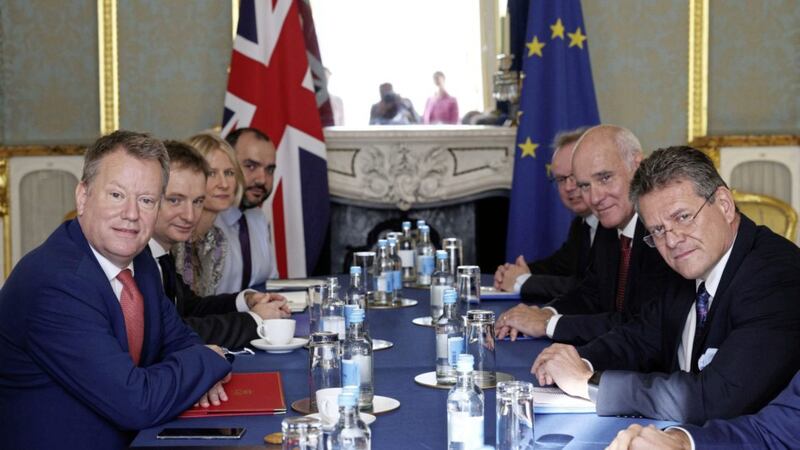Within days of Brexit coming into effect last January xenophobic British tabloids were ranting about Dutch customs officers at the Hook of Holland ferry terminal confiscating ‘British lorry drivers’ ham sandwiches’.
Of course it wasn’t only British lorry drivers, but any lorry coming from the UK, though the tabloids portrayed it as anti-British. The customs man explained: “You are no longer allowed to bring certain foods to Europe, like meat, fruit, vegetables, fish, that kind of stuff. Welcome to the Brexit sir.”
For various reasons: ignorance, arrogance, dishonesty, in some instances glaring stupidity, Conservative Brexiteers assumed that nothing would change after leaving the EU’s single market and customs union. That’s why lorry drivers, not to mention British business or Scottish fishermen, weren’t warned what to expect. There was no preparation whatsoever despite traders of all kinds pleading with the government for information about customs formalities.
Essentially what began to happen at Larne, Belfast and Warrenpoint last January was a mini-version of the scenes at European ferry ports but with a major difference. Unlike European ports there weren’t enough officials, vets or checking facilities because DUP ministers had colluded with Johnson’s Brexit government to avoid the commitments they had signed up to in an international treaty.
To prevent a British border on this island and safeguard its single market, the EU had, in an unprecedented decision, contracted out its single market border to the UK to manage at ports here. As we now know, the British never had any intention of doing so. We know this from various sources including Gavin (now Lord) Barwell, Theresa May’s chief of staff, and arch-Brexiteer Steve Baker MP who said arch-Brexiteers only voted for Johnson’s deal because they were told it could be changed later. That’s exactly what Johnson and his aggressive front man Frost have spent this year trying to do.
They’ve tried in several different ways: refusing to label goods for sale in the north only, refusing to provide real time customs and VAT data as agreed, failing to employ enough staff, unilaterally extending grace periods, and so on.
Finally in July they issued a policy document whose objective is to renegotiate the protocol and remove the jurisdiction of the European Court of Justice which regulates the single market, a deliberately impossible demand. In short, whatever concessions the EU would make will never be enough as proven by Frost’s behaviour in the last month.
We’ve now reached crisis point. The EU expects the British to invoke Article 16 of the protocol within days despite warnings from former prime minster Sir John Major, from Keir Starmer and other British politicians. Invoking Article 16, contrary to the ill-informed belief of loyalist demonstrators and unionist politicians, will not remove the protocol, but what it will do is require lengthy negotiations about its operation.
Now here’s the rub. Johnson and his crony Frost don’t just want to remove the protocol: Ireland is of no concern to them, never has been. It’s crystal clear from Frost’s contribution to a Policy Exchange document last month that the British government wants to repudiate the whole Trade and Cooperation Agreement as basically Theresa May’s deal which took a wrong turn in December 2017. They want to renegotiate. As Simon Coveney warned at the weekend, the EU is having none of this: once bitten twice shy. Why would the EU enter negotiations with a government which reneges on the outcome of negotiations? It’s reported that EU officials, including from Dublin, last week have been gaming responses to Johnson triggering Article 16; the response is expected to be harsh.
The British seem to believe invoking Article 16 will enable them to spend a year or more in talks about their relationship with Brussels, a belief unlikely to be reciprocated. What it means for this place is turmoil, whipped up by reckless unionist politicians, with one objective: a hard British border at any cost.









